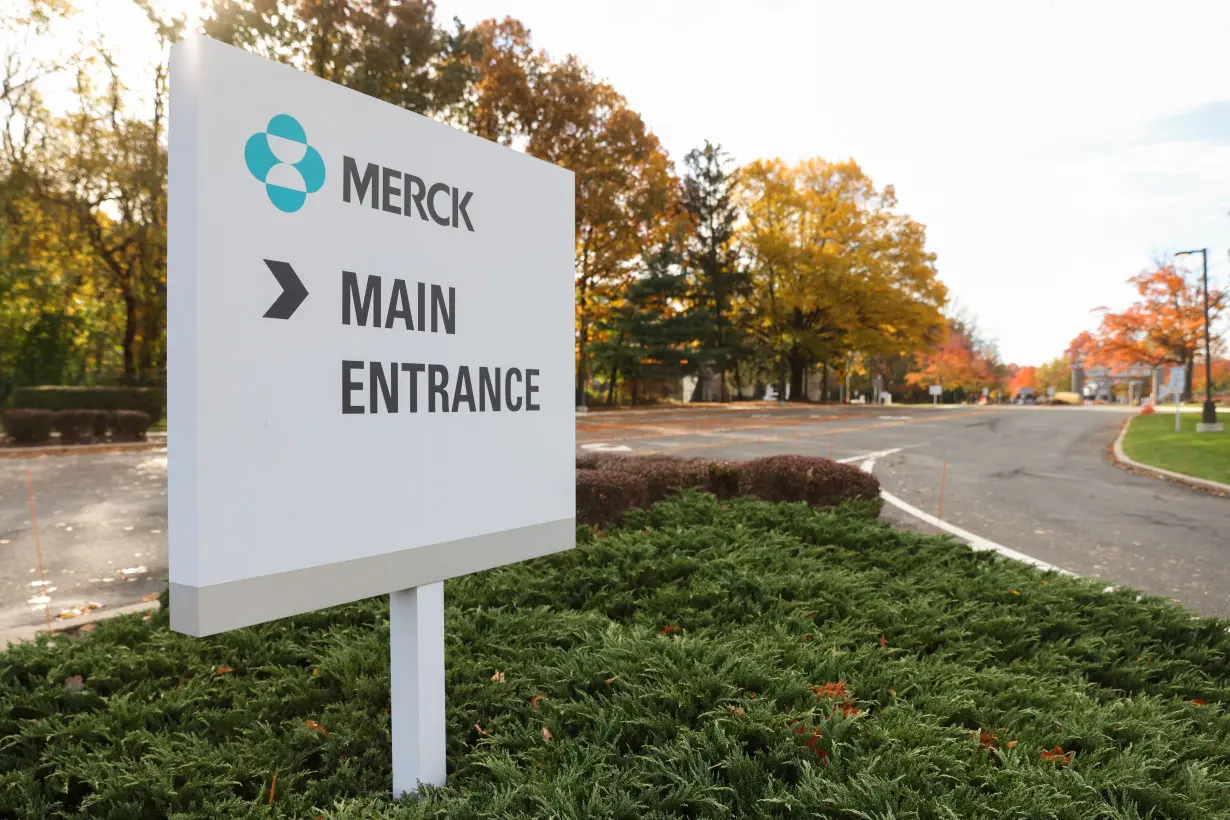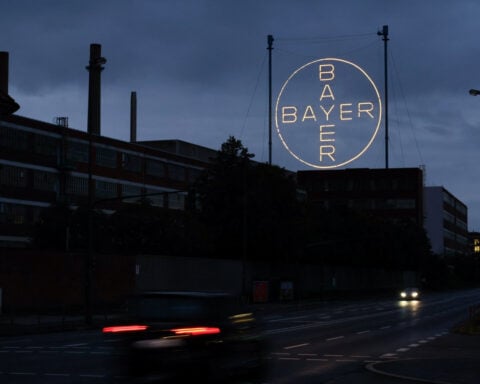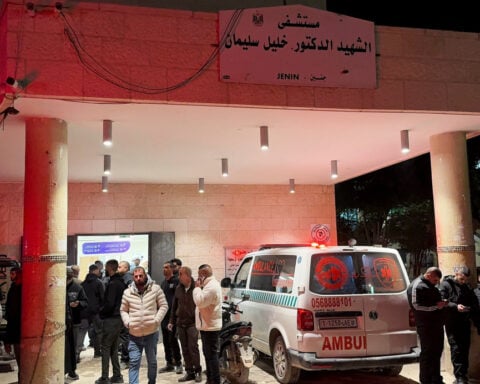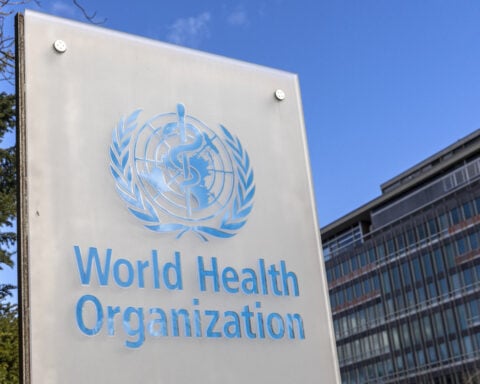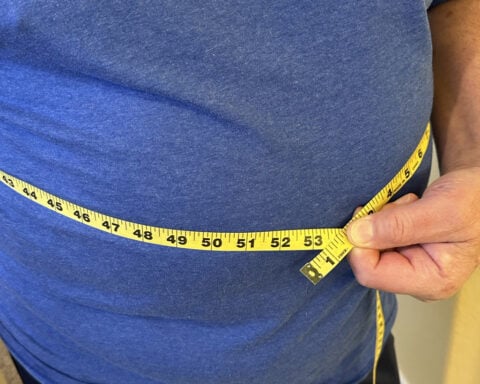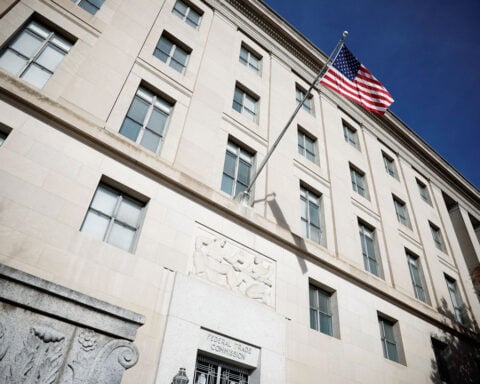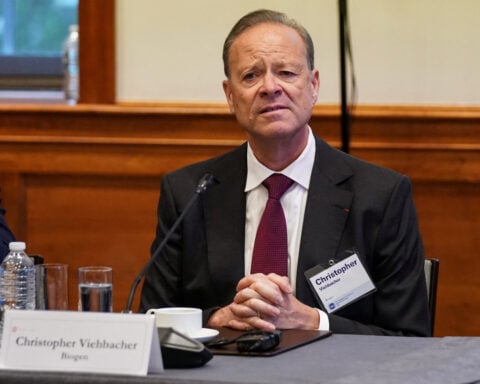By Vaibhav Sadhamta
(Reuters) -Merck's antibody-based shot met the main goal of a mid-to-late stage trial, when tested to protect infants against a disease caused by the respiratory syncytial virus (RSV), the company said on Tuesday.
The injectable product, called MK-1654, helped reduce the incidence of lower respiratory infection in infants compared to placebo, and met the safety goals of the study, Merck said.
Barclays analyst Carter Gould said the data should be viewed positively but the lack of further details from the trial makes it difficult to assess the program further.
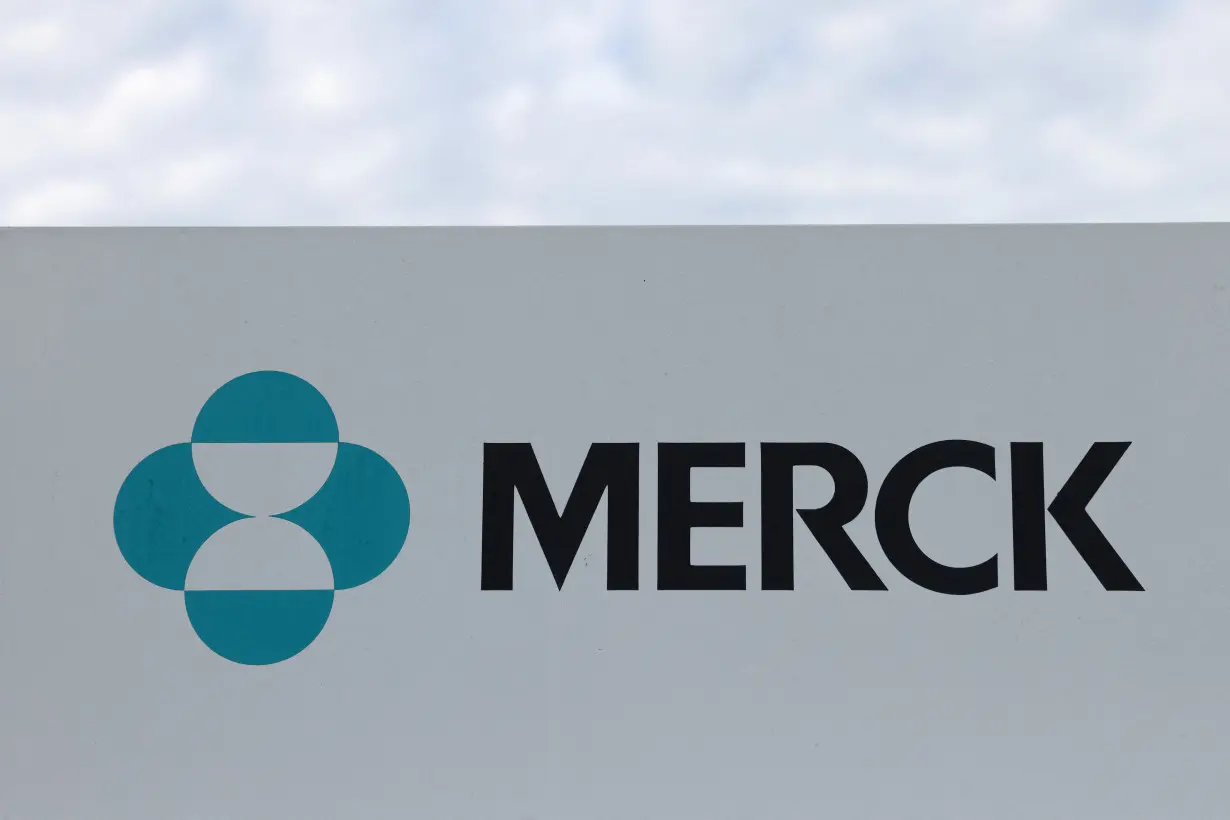
The company plans to file the data with global regulators, and would present detailed findings from the study at an upcoming scientific congress.
RSV is a seasonal respiratory virus that generally causes mild, cold-like symptoms.
Still, infants and older adults have a higher risk of developing severe RSV. It is a leading cause of pneumonia in toddlers and older adults, causing 177,000 hospitalizations and 14,000 deaths in the United States annually.
The U.S. Food and Drug Administration has already approved Beyfortus, a long-acting antibody option from Sanofi and partner AstraZeneca, to prevent RSV in children up to 24 months of age.
Pfizer's maternal RSV vaccine, Abrysvo, is also available as a preventive measure for young infants. It is advised to be given to women 32 to 36 weeks into a pregnancy to prevent lower respiratory tract infection and severe disease in infants until they are six months old.
(Reporting by Vaibhav Sadhamta and Puyaan Singh in Bengaluru; Editing by Shilpi Majumdar and Shailesh Kuber)

 Italy, Albania, UAE sign deal for energy subsea interconnection
Italy, Albania, UAE sign deal for energy subsea interconnection
 European shares advance as bond yields ease; soft inflation powers UK stocks
European shares advance as bond yields ease; soft inflation powers UK stocks
 Bank Indonesia delivers surprise rate cut to support growth
Bank Indonesia delivers surprise rate cut to support growth
 Novak Djokovic breaks a tie with Roger Federer for the most Grand Slam matches in tennis history
Novak Djokovic breaks a tie with Roger Federer for the most Grand Slam matches in tennis history
 China's RedNote: what you need to know about the app TikTok users are flocking to
China's RedNote: what you need to know about the app TikTok users are flocking to
 British author Neil Gaiman denies ever engaging in non-consensual sex as more accusers come forward
British author Neil Gaiman denies ever engaging in non-consensual sex as more accusers come forward
